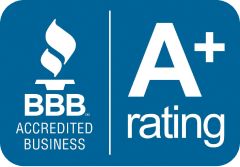Special Needs Plans (SNPs) are a type of Medicare Advantage plan designed specifically for people who meet specific eligibility criteria. These plans meet your benefits to meet the special needs of their members.

There are three types of Special Needs Plans available in Maine:
Dual-Eligible Special Needs Plans (D-SNP)
D-SNP plans are intended for people who are eligible for Medicare and are also eligible for support from a government Medicaid program or MaineCare.
Chronic-Condition Special Needs Plans (C-SNP)
C-SNP plans apply to people with one or more of the following conditions: diabetes, cardiovascular disease, chronic heart failure, and chronic lung conditions such as COPD.
Institutional Special Needs Plans (I-SNP)
These plans are for those who live in an institution (such as a nursing home) or need care at home.
If you fall into one of the above categories, you may have unique health needs that a special needs plan might be better equipped for.
For example, some special needs plans offer a wider network of providers who specialize in treating your condition or lowering the cost of prescription drugs that are usually prescribed for your particular condition.
Find Medicare Plans in 3 Easy Steps
We can help find the right Medicare plans for you today
Special Needs Plans benefits
Like other Medicare Advantage insurance plans, special needs insurance plans are available through private insurance companies that have been approved by Medicare. All Medicare Advantage plans must provide at least the same level of coverage as Original Medicare, Part A, and Part B. Some Medicare Advantage plans may also cover benefits that go beyond what Original Medicare covers and your Medicare plan options and benefits may vary depending on where you live.
Learn more about Medicare Advantage plans here If you’re enrolled in a special needs plan for duplicate beneficiaries, certain social services may be available to help you coordinate your Medicare and Medicaid benefits, along with additional benefits such as dental and vision coverage, help with over-the-counter plans treatment items such as vitamins and toothpaste, or supplements to buy healthy foods.
It’s important to note that you still get all the coverage included in Original Medicare, Part A, Part B, and Medicare Part D. A special needs plan simply provides additional coverage so you can better manage your specific situation, whether you live in a care home. Medicare and Medicaid insurance benefits; or treatment of a serious chronic illness.
Getting help with costs
If you have Medicare and Medicaid or have a limited income, Medicaid may cover some or all of the bonuses and/or out-of-pocket expenses of your Medicare Advantage special needs plan. Depending on your income level, you may qualify for a Medicare savings program that allows you to pay for costs such as premiums, copays, coinsurance, or deductibles.
Medicare Advantage Special Needs Plans costs
Depending on your special needs plan, you’ll usually have help paying:
- Medicare Part B premium
- The monthly premium for your special needs plan (up to a certain amount)
- Costs for sharing costs such as copays, coinsurance, and deductibles
Remember that your plan for specific needs Costs may vary depending on whether it is eligible for full or partial financial support or Medicare and MaineCare benefits. Out-of-pocket costs also depend on the type of care you need and how often you need it.
Each special needs plan is different, so you should review the materials specific to the plan you’re considering to see exactly how much you need to pay. Be sure to pay special attention to differences in cost-sharing when using doctors in the plan’s network versus out-of-network doctors (if the plan allows you to leave the network).
Enrolling in a Medicare Advantage Special Needs Plan
You can enroll in a special needs plan the first time you’re eligible for Medicare if you have a special needs plan in your service area and meet that plan’s eligibility requirements. Most people are eligible for Medicare for the first time during their first enrollment period. The seven-month period that starts three months before your 65th birthday includes the month of your birthday and ends three months later.
If you are eligible for Medicare because of a disability, your initial enrollment period begins three months before the 25th month of receiving disability benefits from the social security retirement board or rail retirement board and lasts seven months. You can also enroll in a special needs plan during the annual open enrollment period from October 15 to December 7 of each year.
During this period, you can sign up for the first time in a special needs plan, change plans, or opt out of your plan to choose a different plan. Outside of these periods, you may be able to enroll in a special needs plan with a special time frame in certain situations.
Some situations in which you may qualify for a special election period to enroll in a special needs plan or make changes to coverage include:
- You are diagnosed with a serious or disabling condition: You can enroll in a chronic health plan for special needs of beneficiaries with your illness at any time, and your special period ends when you enroll in the plan.
- You are moving to a nursing home, currently living in or out of a nursing home: You can enroll in a special needs plan or change plans at any time.
- You’re eligible for Medicaid: If you have Medicaid or are now eligible for Medicaid, you can always enroll in a Medicare Special Needs plan.
- You’re leaving your special needs plan’s service area: you can use a special term to switch to a new plan or you’ll be automatically returned to your Original Medicare.
- Your special needs plan drops out of Medicare: You can use a special term to switch to another special needs plan.
Find Medicare Plans in 3 Easy Steps
We can help find the right Medicare plans for you today
Do you have any more questions?
If you need help comparing different health insurance policies or understanding what plans your doctors and prescriptions cover, I can help.
FAQs
Which of the following are the types of special needs plans SNPs?
SNPs are divided into three categories:
- Chronic Condition SNP (C-SNP)
- Dual Eligible SNP (D-SNP)
- Institutional SNP (I-SNP)
What is SNP plan?
Individuals who are eligible for both Medicare (title XVIII) and medical assistance from a state plan under Medicaid are enrolled in Dual Eligible Special Needs Plans (D-SNPs) (title XIX). Depending on the state and the individual’s eligibility, some Medicare expenditures are covered by the state.
What is the difference between SNP and D-SNP?
Institutional SNP (I-SNP): For people who live in a nursing home or need nursing care at home. D-SNP (Dual-Eligible SNP): For people who are eligible for both Medicare and Medicaid.
What does the SNP model of care include?
The entire strategy for SNP structure, processes, resources, and requirements is known as the SNP Model of Care. The target population, including health and socioeconomic aspects, as well as the specific properties of each SNP type, must be identified and described in SNP MOCs.
What does SNP mean in Medicare?
Plans for People with Disabilities
SNPs (Special Needs Plans) | Medicare
What are the three types of Medicare special needs plans?
Chronic Condition SNP, Institutional SNP, and Dual-Eligible SNP are the three categories of Special Needs Plans. The majority of SNPs are HMOs (Health Maintenance Organizations) (HMOs).
Is D-SNP a Medicare Advantage Plan?
Dual Eligible Special Needs Plans are available in California. D-SNPs (Dual Eligible Special Needs Plans) are Medicare Advantage (MA) health plans that offer specialized care and services to dual-eligible beneficiaries (eligible for both Medicare and Medicaid).
What are dual special needs plans Dsnp )?
A health insurance plan for people with dual special needs is known as a dual special needs plan. It is for persons who are eligible for both Medicaid and Medicare. You’re “dual-eligible” if that describes you. (This is just another way of saying you can have both Medicaid and Medicare.)
How does CMS ensure plans are compliant with Medicare regulations?
To guarantee compliance with the health insurance market reform standards, CMS will undertake targeted market conduct investigations as needed and react to consumer inquiries and complaints. CMS will cooperate with the state to address any issues that arise.
Are SNP plans network based?
The scale of SNP networks and the populations they serve vary. There are two types of networks: Networks that cover a certain geographic area. One network might span an entire state, while another might just cover a single county.







